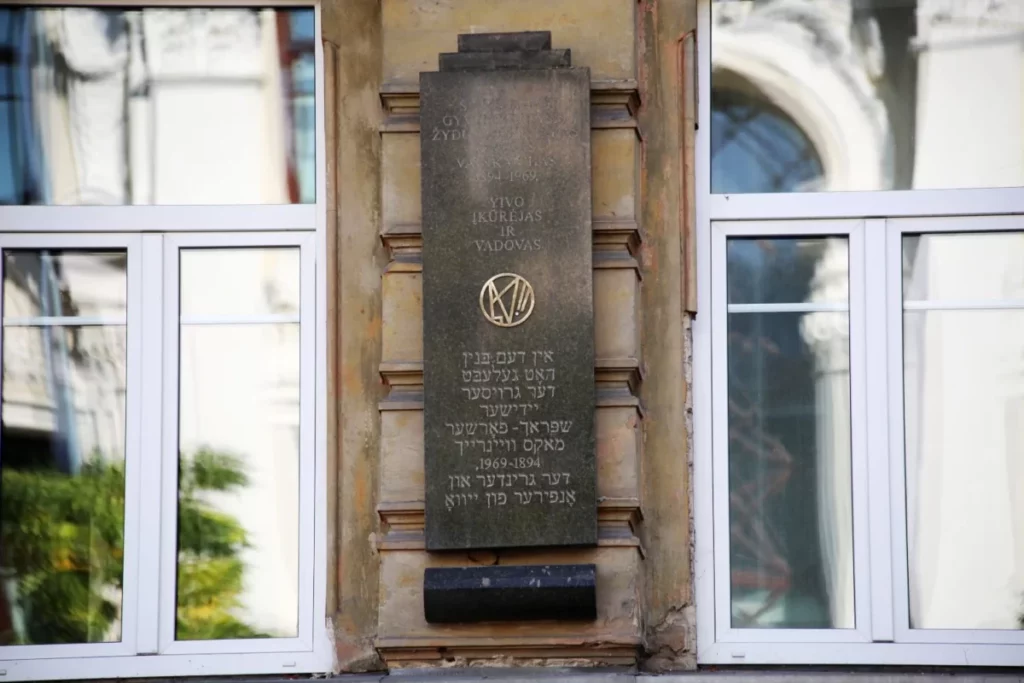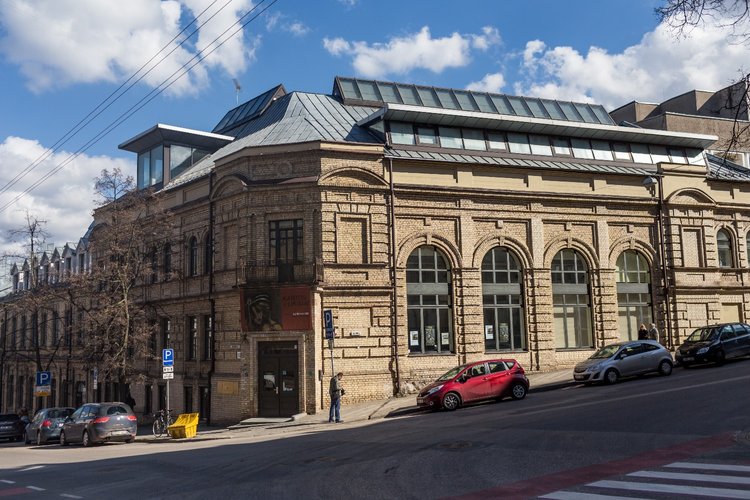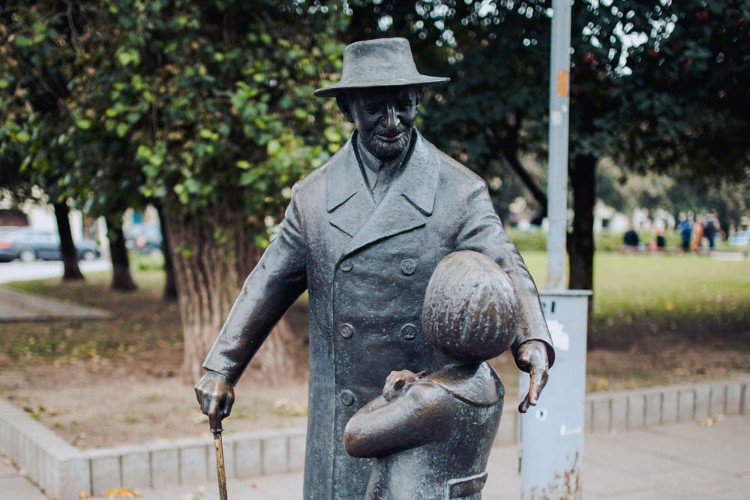Vilnius
Discover Jewish life in Vilnius
00:00
00:00
- No title 00:00
The Centropa AudioWalk brings to life the vibrant Jewish history of Vilnius. Once called the Jerusalem of the North, Vilnius served as both the spiritual and political centre for much of Eastern European Jewry. As you join our AudioWalk, you will see places of cultural and religious significance that at one time served a thriving Jewish community of over 55,000 people. Listen to the personal stories and memories of several Jewish Holocaust survivors, which they shared in their interviews with Centropa, and gain further insight into the rich Jewish history of Vilnius.
Listen now:
About the Jewish Vilnius AudioWalk
00:00
00:00
- No title 00:00
This AudioWalk focuses on 20th-century Jewish life in Vilnius, the capital of Lithuania. It was developed and produced by the Jewish historical institute Centropa and the Sholem Aleichem School in Vilnius, supported by the GoodWill Foundation.
Between 2005 and 2006, Centropa interviewer Zhanna Litinskaya visited 26 of the oldest living Jews in Lithuania and asked them to share their accounts of their experiences in Vilnius before, during, and after the Second World War. Using five of these personal stories, we will take you on a virtual tour to one of the most vibrant pre-war centres of Jewish life in Eastern Europe.
We learn about their experiences as children and young adults in Vilnius and the surrounding area, and gain a better understanding of the horrors that occurred during the war and in the years under Soviet occupation.
The Holocaust greatly diminished Lithuania’s Jewish community, as over 90 percent of its Jewish population who remained in Lithuania died at the hands of the Nazis and their collaborators, which was among the highest rates in Europe.
Following the Second World War and the eventual collapse of the Soviet Union, what was left of the Lithuanian Jewish community has been steadily declining. There are currently 6,000 Jews that live in Lithuania, with the majority of them residing in Vilnius, a city that was once known as the “Jerusalem of the North.”
Read more
Listen now:
Introduction to Vilnius’s Jewish History
00:00
00:00
- No title 00:00
Jews began settling in Vilnius in the mid-15th century. Local merchants initially opposed Jewish migration to this region and issued a charter, called “No Tolerance for Jews,” that banned Jews from settling and conducting trade in Vilnius. Despite this opposition, a small Jewish community began to form on the bank of the River Neris as Jews were given the right to collect taxes, rent houses, and lend money. This ban lasted from 1527 until 1593, when King Sigismund Vaza III, following a series of violent pogroms against Jews, granted legal approval of Vilnius’s Jewish settlements, allowing them to engage in trade and industry, as well as establish Jewish institutions like schools and synagogues (sources: Yad Vashem, YIVO). He was given the name “the Kind Israeli,” as his rule was the start of what became the Golden Age of Jewry in Vilnius.
By the beginning of the 17th century, in 1610, Jews were migrating to Vilnius’ Old Town from both eastern and western Europe, mainly coming from Germany and France, and from the Belarus-Russian Jewish community. Of the 15,000 residents of Vilnius at that time, one-fifth were Jewish. Tensions between Lithuanian Jews and their gentile neighbors continued throughout the 17th and 18th centuries, but this did not stop the Jewish population from growing significantly.
From 1569 to 1792, Lithuania was part of the Polish-Lithuanian Commonwealth, and within this empire, Jews from Poland, Lithuania, Belarus, and parts of Latvia became part of a distinct group known as the Litvaks (Facing History). Later, the term “Litwin” was used to refer only to Jews of Lithuanian origins.
At the end of the 1700s, Vilnius was captured by Swedish and Russian armies and remained under the control of various governments until it was taken over by the Soviet Union and restored to Lithuania from Poland in 1939. Vilnius began to develop its reputation as an important political, religious and cultural center for European Jewry. Lithuanian Jews were known for having a highly developed Jewish culture, including their own specific Yiddish dialect. According to historian Israel Cohen, who wrote a book about Jewish Vilnius in 1943, the city had an “influence upon the religious and cultural development of the Jews throughout Eastern Europe… [it] has been a bastion of Judaism and Jewish life” (xli). At its height, Vilnius was home to approximately 300 rabbis and 100 synagogues, or prayer houses known as kloizn.
Fania Brantsovskaya described her early life in Vilnius in a 2005 Centropa interview:
Before World War II, Vilnius was a center of Yiddish culture in Eastern Europe. There were over 100 synagogues in Vilnius, educational and prayer institutions, a charity fund, professional guilds, a Jewish hospital, an elderly people’s home, a charity children’s fund, a Jewish public school, a Jewish theater and choirs, a health organization, a labor association, a few schools and gymnasiums teaching in Yiddish and Hebrew.At the start of the 20th century, over 76,000 Jews lived in Vilnius, making up half of the city’s total population (Yad Vashem). With the outbreak of the First World War, Vilnius changed radically, as it was caught between nationalist struggles between Poles, Lithuanians, and Russians. At the outbreak of the war, thousands of Jews fled to Russia as the Germans took over Vilnius from the Russian Tsar. During this time, thousands of Jews emigrated from Lithuania to North America to escape the political, economic, and social instability of the region Source, Source).
Read more















